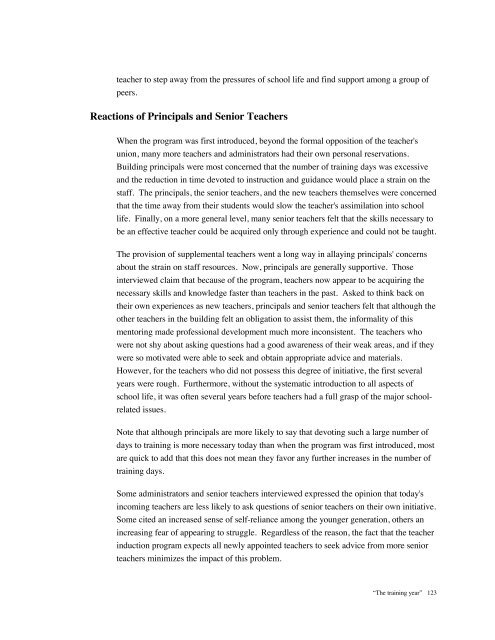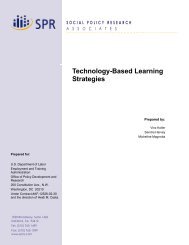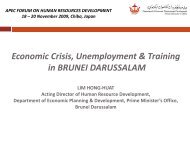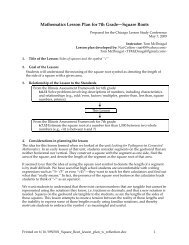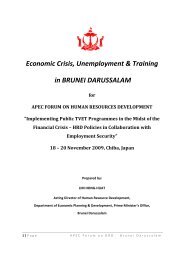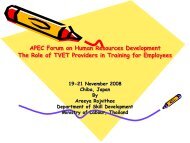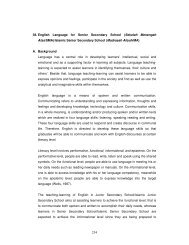TEACHER INDUCTION IN JAPAN
TEACHER INDUCTION IN JAPAN
TEACHER INDUCTION IN JAPAN
You also want an ePaper? Increase the reach of your titles
YUMPU automatically turns print PDFs into web optimized ePapers that Google loves.
teacher to step away from the pressures of school life and find support among a group ofpeers.Reactions of Principals and Senior TeachersWhen the program was first introduced, beyond the formal opposition of the teacher'sunion, many more teachers and administrators had their own personal reservations.Building principals were most concerned that the number of training days was excessiveand the reduction in time devoted to instruction and guidance would place a strain on thestaff. The principals, the senior teachers, and the new teachers themselves were concernedthat the time away from their students would slow the teacher's assimilation into schoollife. Finally, on a more general level, many senior teachers felt that the skills necessary tobe an effective teacher could be acquired only through experience and could not be taught.The provision of supplemental teachers went a long way in allaying principals' concernsabout the strain on staff resources. Now, principals are generally supportive. Thoseinterviewed claim that because of the program, teachers now appear to be acquiring thenecessary skills and knowledge faster than teachers in the past. Asked to think back ontheir own experiences as new teachers, principals and senior teachers felt that although theother teachers in the building felt an obligation to assist them, the informality of thismentoring made professional development much more inconsistent. The teachers whowere not shy about asking questions had a good awareness of their weak areas, and if theywere so motivated were able to seek and obtain appropriate advice and materials.However, for the teachers who did not possess this degree of initiative, the first severalyears were rough. Furthermore, without the systematic introduction to all aspects ofschool life, it was often several years before teachers had a full grasp of the major schoolrelatedissues.Note that although principals are more likely to say that devoting such a large number ofdays to training is more necessary today than when the program was first introduced, mostare quick to add that this does not mean they favor any further increases in the number oftraining days.Some administrators and senior teachers interviewed expressed the opinion that today'sincoming teachers are less likely to ask questions of senior teachers on their own initiative.Some cited an increased sense of self-reliance among the younger generation, others anincreasing fear of appearing to struggle. Regardless of the reason, the fact that the teacherinduction program expects all newly appointed teachers to seek advice from more seniorteachers minimizes the impact of this problem.“The training year” 123


